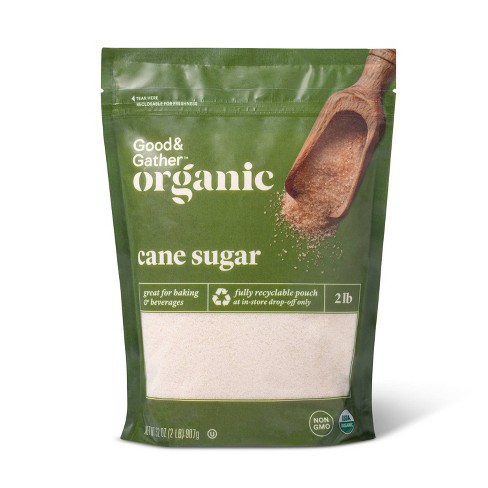Sugar and Cane: A Guide to Their Nutritional Benefits and Uses
Sugar and Cane: A Guide to Their Nutritional Benefits and Uses
Blog Article
Why Cane Sugar Processing Chemicals Are Important for Modern Sugar Refining
The function of cane sugar processing chemicals in modern sugar refining can not be overemphasized, as they are integral to enhancing both the efficiency of removal and the total quality of the final item. Representatives such as phosphoric acid and specific flocculants are used to eliminate impurities, resulting in sugar that not only satisfies consumer expectations but additionally adheres to industry requirements.
Duty of Handling Chemicals
The effectiveness of cane sugar handling hinges considerably on the calculated application of handling chemicals. These chemicals play an essential duty in boosting the performance and quality of sugar removal and refining. From the first stages of juice extraction to the last filtration steps, handling chemicals facilitate numerous critical procedures.
In the removal stage, chemicals such as phosphoric acid and calcium hydroxide are used to optimize the clarification procedure, helping to remove contaminations and suspended solids from the walking stick juice. This not just enhances the return however likewise ensures the clearness of the end product. In addition, agents like flocculants aid in the quick settling of pollutants, therefore streamlining the total procedure.
Activated carbon and ion exchange resins offer to eliminate shade and smell, guaranteeing that the refined sugar meets customer quality standards. Thus, the thorough selection and application of these chemicals are important for achieving optimum end results in walking cane sugar handling.
Trick Kinds Of Chemicals
Walking cane sugar processing counts on a variety of crucial chemicals that help with each stage of manufacturing. These chemicals play important roles in clearing up, bleaching, and purifying the sugar drawn out from walking cane.
One primary category of chemicals includes flocculants, such as polyacrylamide, which aid in the information procedure by promoting the aggregation and settling of impurities. Furthermore, calcium hydroxide is often utilized to counteract acidity and help in the removal of non-sugar components.
Bleaching representatives, such as activated carbon and sulfur dioxide, are used to decolorize the syrup, leading to a clearer final item. These chemicals aid eliminate color substances that might influence the sugar's look and marketability.
Furthermore, phosphoric acid offers as a pH regulatory authority during the processing phases, making sure optimum problems for the chemical activities involved in sugar removal and purification.
Various other crucial representatives include edta (ethylenediaminetetraacetic acid), which chelates metal ions that can militarize unfavorable reactions, and salt hydroxide, which helps in pH control throughout the refining process. Jointly, these chemicals enhance performance and make certain a premium walking stick sugar item.
Advantages for Sugar High Quality
Commonly ignored, making use of details handling chemicals dramatically boosts the general top quality of walking cane sugar. These chemicals play a pivotal duty in refining procedures, ensuring that the end product satisfies stringent sector standards for purity and preference.

In addition, refining chemicals aid in achieving a consistent granulation and texture, which are critical for consumer approval. By regulating the condensation procedure, these chemicals guarantee that the sugar crystals develop consistently, leading to an extra enticing item that dissolves well in numerous applications.
Furthermore, using these chemicals can enhance the rack life of walking cane sugar by decreasing wetness absorption and microbial growth. On the whole, the strategic application of handling chemicals is crucial for supplying high-grade cane sugar that satisfies consumer assumptions and industry needs.
Ecological Impact Factors To Consider

Additionally, the energy-intensive nature of sugar refining, compounded by chemical usage, commonly leads to raised carbon exhausts. This adds to environment modification and elevates problems regarding the sustainability of present refining practices. Additionally, the sourcing of these chemicals may include techniques that threaten biodiversity, such as monoculture farming, which lowers the strength of farming ecosystems.

To alleviate these effects, sugar refiners are significantly exploring sustainable choices and taking on finest techniques that minimize chemical use. Applying rigorous ecological monitoring systems can help guarantee that the refining process lines up with environmental criteria and advertises biodiversity. Inevitably, a well balanced strategy that prioritizes both sugar quality and environmental stewardship is important for the long-term feasibility of the sugar industry.
Future Fads in Refining
As the sugar market faces the environmental challenges connected with conventional refining methods, cutting-edge approaches are emerging to enhance both efficiency and sustainability. One substantial pattern is the adoption of environment-friendly chemistry principles, which focus on making use of non-toxic, eco-friendly processing chemicals. This change not only lessens ecological influence however additionally addresses customer need for cleaner production methods.
Another appealing development is the implementation of innovative filtering innovations, such as membrane layer splitting up and adsorption processes. These techniques boost the clarity and top quality of the sugar while minimizing the volume of wastewater generated during refining. Furthermore, the assimilation of electronic innovations, consisting of IoT and AI, is changing functional effectiveness by enabling real-time tracking and predictive maintenance, thus decreasing resource waste.
In addition, the use of spin-offs from sugar refining, such as bagasse and molasses, is getting grip. These products can be transformed right into biofuels or value-added products, adding to a round economic situation within the market. Collectively, these patterns signify a change in the direction of more lasting techniques that not just boost operational performance but also straighten with worldwide sustainability goals, ensuring the future feasibility of sugar refining.
Conclusion
Cane sugar processing chemicals are essential in contemporary sugar refining, considerably enhancing the performance and quality of sugar removal. The critical use of these chemicals not just improves the pureness and flavor of the end product but additionally guarantees regular formation and structure. As the sector significantly focuses on sustainability, the adoption of environmentally-friendly handling agents is likely to form future trends in refining, ultimately bring about better items and expanded life span for customers.

Eventually, a balanced approach that focuses on both sugar quality and ecological stewardship is important for the long-lasting viability of the sugar sector.
Cane sugar processing chemicals are important in modern-day sugar refining, dramatically enhancing the effectiveness and top quality of sugar extraction.
Report this page